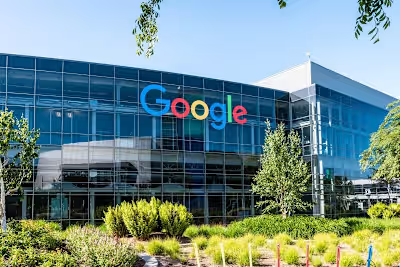It’s Time to Shake Up Your SEO Strategy
Like this project
Posted Sep 7, 2023
In the dynamic field of SEO, we’re constantly evolving in response to changes in search engine algorithms, technology, user behavior, and market conditions.
Likes
0
Views
7

Photo by on
In the ever-changing realm of digital marketing, the only constant is change itself.
In the dynamic field of SEO, we’re constantly evolving in response to changes in search engine algorithms, technology, user behavior, and market conditions.
2023 is no different. That’s why you’re reading this: to learn about new strategies and adapt them accordingly so you can maintain and improve your search rankings and online visibility.
But first things first.
Why do SEO strategies change so quickly?
The not-so-short, complicated answer is:
Algorithm updates
Competitive landscape
Technology advancements
User expectations
Emerging trends
Penalty avoidance
Data analysis
Market changes
Global and local factors
Content evolution
A more fun way to think of it is like mobile game updates. Search engines, like Google, are always tweaking their secret recipe to make sure you find the best results when you search.
So, just like game developers keep adding new levels and challenges to keep you hooked, SEO experts have to keep tweaking their strategies to stay on top of the search rankings.
Why does this happen?
Well, it’s a bit like a race. More and more websites are competing to be at the front of the line.
To win this race, SEO pros have to adapt to new gadgets (like voice searches and mobiles), avoid tricky obstacles (search engine penalties), and make sure their content is not only good but also loads super fast and looks amazing.
In a nutshell, SEO is like staying ahead in a gaming world where the rules change, the competition gets tougher, and players have to level up to keep winning!
So what’s the new strategy this year?
Experience. As of this year, Google put another “E” in EAT. So now it’s E-EAT. Experience, Expertise, Authority, Trust.
I know, it doesn’t quite roll off the tongue as before.
Basically, this means that if you have experience writing about home beer-making, Google will consider your future home beer-making articles when evaluating the quality of the content.
This is a big deal because it’s no longer only about the content creator’s skills. It’s also about the topics they‘re focusing on.
That leads us to the next trend
Content written by real people. The reason Google is so focused on experience is that they don’t want AI-generated content ranking in the SERPS.
And if we’re all being honest, neither do we.
This now means Google and other search engines want to see author bios, links to other pages by the same author, and links to the creator’s social media accounts.
It’s all about helpful content
Stop cramming in those keywords and start providing helpful information for the people looking for it.
You’re probably already doing this, but you can stop worrying about pumping out a high volume of content packed with target keywords. Instead, you’re more likely to rank if you concentrate on helpfulness and expertise.
In 2023, it’s best you shoot for content that’s written for real humans, not algorithms. My advice: Read your article out loud and make sure it sounds like you’re talking to a person in front of you.
Some people would categorize this as “conversational.” Aim for that.
Don’t completely forget about AI
ChatGPT and other popular AI tools are here to stay, whether we like it or not. Those are the facts. We have to get used to it.
But if you’ve tried prompting ChatGPT to write an article for you, you know that it’s far from generating anything human-like. That’s why people like us are still needed.
But that doesn’t mean you shouldn't utilize AI technology. In fact, you should be using it to help with content briefs, outlines, title ideas, and more.
You can even streamline your SEO game with AI-generated images. After all, why wouldn’t you promote your content with attractive, unique visuals?
Take this one, for example:

Microsoft Bing Image Creator. Prompt: Using a computer in the future.
That’s just a simple example. Paid image generators like Midjourney can produce pieces of art so beautiful that they seem like they were created by famous artists.
Ride the SEO wave!
Now that we’re in the loop with SEO trends, we can ride the wave to online success — for now. I always try to keep up with SEO best practices every six months or so. That way, my website will always be the coolest kid on the digital block.





